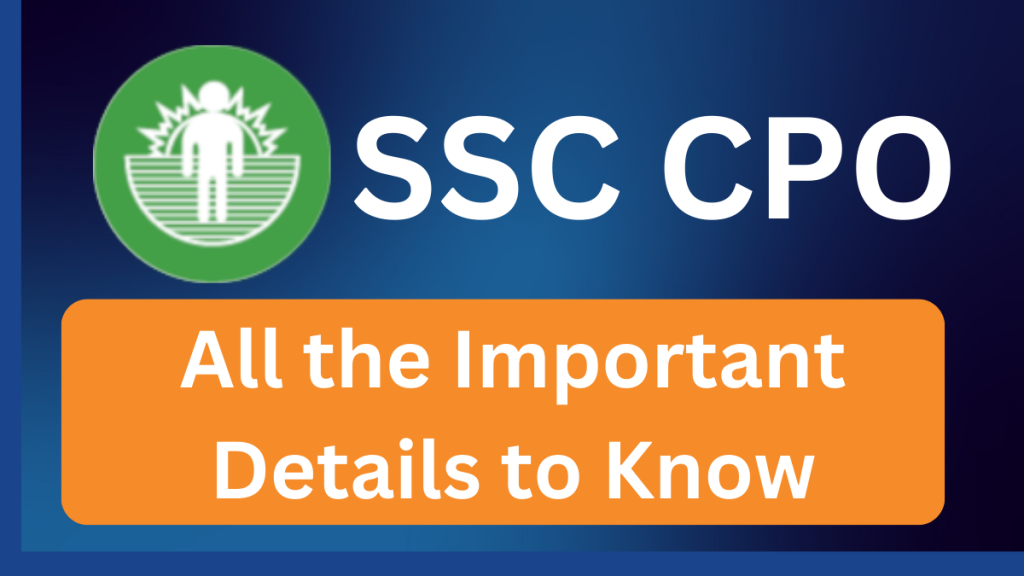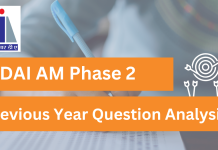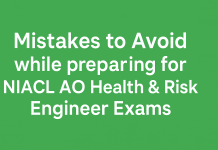The Staff Selection Commission (SSC), a revered institution in our country, plays a pivotal role in conducting various competitive examinations that pave the way for promising careers in the public sector. Among its prestigious lineup of recruitment processes, the SSC CPO (Central Police Organization) stands out as a gateway to dynamic roles in law enforcement and security agencies. With the SSC CPO notification around the corner, aspiring young graduates have an exceptional opportunity to embark on a fulfilling career in the police sector.
This annual examination, spanning diverse positions such as Sub Inspector in Delhi Police, Sub Inspector in Central Armed Police Forces (CAPFs), and Assistant Sub Inspector in Central Industrial Security Force (CISF), offers candidates a chance to serve the nation by maintaining law and order and upholding the safety of citizens.
The anticipation for the SSC CPO Exam 2024 is building up, with the official notification set to be released soon. The application period for this cycle will commence with the release of the official notification. The recruitment process aims to fill positions in various central government police forces, including Delhi Police and Central Armed Police Forces like BSF, CISF, CRPF, ITBP, and SSB. The selected candidates can anticipate a competitive salary ranging from Rs. 35,400 to Rs. 1,12,400, aligning with Pay Level-6. This beckons aspiring individuals to explore the details of eligibility criteria, selection processes, and the rewarding career prospects that the SSC CPO examination offers in public service and national security.

SSC CPO: Eligibility Criteria
The SSC CPO Eligibility Criteria play a crucial role in determining the suitability of candidates for various posts within the Central Police Organization. To apply for this examination, candidates must hold a Bachelor’s degree from a recognized university, ensuring a foundation of education for those aspiring to contribute to law enforcement and security. In addition to educational qualifications, the age criteria are paramount, and candidates applying for SSC CPO should be between 20 and 25 years old. However, there are age relaxations provided for specific categories to ensure inclusivity. SC/ST candidates enjoy a relaxation of 5 years, OBC candidates have a relaxation of 3 years, and ex-servicemen benefit from a relaxation of 3 years after the deduction of military service from the actual age.
Special considerations are made for specific categories, such as widows, divorced women, and women judicially separated from their husbands. Furthermore, departmental candidates of the Delhi Police have age relaxations based on their years of regular and continuous service. Candidates successfully passing the SSC CPO Exam will undergo the Physical Standard Test (PST) and Physical Endurance Test (PET). These tests, though qualifying in nature, are integral to assessing candidates’ physical fitness and endurance, ensuring they meet the necessary standards for the demanding roles within the Central Police Organization.
| Criteria | Details |
| Educational Criteria | Bachelor’s Degree From a Recognized University |
| Age Criteria | 20 to 25 years |
| PST (Physical Standard Test) | Qualifying in nature, no marks allotted |
| PET (Physical Endurance Test) | Qualifying in nature, no marks allotted |
Selection Process for SSC CPO
The initial stage of the SSC CPO examination involves Computer Based Examination (Paper I), where candidates are assessed on their proficiency in General Intelligence & Reasoning, General Knowledge & General Awareness, and Quantitative Aptitude. This comprehensive test evaluates candidates’ analytical and quantitative skills, awareness of current affairs, and general knowledge. Success in this stage is crucial, as it is a foundation for progressing in the recruitment process.
Following the Computer Based Examination (Paper I), candidates who qualify undergo the Physical Standards Test (PST) and Physical Endurance Test (PET). These tests gauge the candidates’ physical capabilities, encompassing activities like running, long, and high jump. The focus on physical fitness is integral, reflecting the demanding nature of roles within the Central Police Organization. Candidates must meet the specified standards in these tests to advance to the next stage of the recruitment process, ensuring that they possess not only mental insight but also the physical prowess required for the challenging responsibilities in law enforcement.
Subsequently, the successful candidates proceed to the Computer-Based Examination (Paper II), which evaluates their English language proficiency and comprehension. This stage further refines the assessment, ensuring that candidates possess the necessary language skills to effectively communicate and comprehend information, an essential aspect of their law enforcement and security roles.
SSC CPO: Exam Pattern
The SSC CPO Exam Pattern is crucial for candidates navigating through official notifications. Comprising four sections – Quantitative Aptitude, General English, General Awareness, and General Intelligence and Reasoning – each section holds equal weightage in the examination. It is imperative for aspirants to accord equal importance to all sections due to their balanced significance in the overall evaluation process. The SSC CPO Paper 1, conducted online for 2 hours, involves 50 questions in each section. Following this, the Paper 2 exam focuses on English language and Comprehension, carrying a weightage of 200 marks and a time allocation of two hours. Adhering to the SSC CPO Exam Pattern is crucial for candidates aiming to excel in each section and secure success in the competitive examination.
| Subject | Questions | Marks | Duration |
| General Intelligence and Reasoning | 50 | 50 | 2 Hours |
| General Knowledge and General Intelligence | 50 | 50 | |
| Quantitative Aptitude | 50 | 50 | |
| English Language and Comprehension (Paper 1) | 50 | 50 | |
| Total | 200 | 200 | |
| English Language and Comprehension (Paper 2) | 200 | 200 | 2 Hours |
SSC CPO: Exam Syllabus
Understanding the SSC CPO Exam Syllabus is a fundamental step before embarking on the preparation journey for the SSC CPO examination. The syllabus serves as a roadmap, delineating the subjects to be covered and aiding candidates in structuring their study plans effectively. SSC CPO Paper 1, a computer-based test, encompasses four sections: General Awareness, General Intelligence and Reasoning, English Comprehension, and Quantitative Aptitude. Quantitative Aptitude topics such as Time, Speed, and Distance, and General Awareness topics like History and Current Affairs hold significant weightage, making them focal points for thorough preparation.
In SSC CPO Paper 2, which focuses on English Language and Comprehension, candidates will be evaluated on error recognition, vocabulary, grammar, sentence structure, and comprehension skills. Familiarity with these topics is crucial for success in this section. By referring to the detailed syllabus, candidates can identify key areas for focus and gain a competitive edge in the examination. Thus, a comprehensive understanding of the SSC CPO exam syllabus is essential for aspirants seeking to navigate the intricacies of the examination and optimize their preparation strategies.
| Section | Topics |
| General Intelligence & Reasoning | Analogies, Similarities and Differences, Space Visualization, Spatial Orientation, Problem Solving, Analysis, Judgment, Decision Making, Visual Memory, Discrimination, Observation, Relationship Concepts, Arithmetical Reasoning and Figural Classification, Arithmetic Number Series, Non-verbal Series, Coding And Decoding, Statement Conclusion, Syllogistic Reasoning, Semantic Analogy, Symbolic/ Number Analogy, Figural Analogy, Semantic Classification, Symbolic/ Number Classification, Figural Classification, Semantic Series, Number Series, Figural Series, Problem Solving, Word Building, Coding & De-coding, Numerical Operations, Symbolic Operations, Trends, Space Orientation, Space Visualization, Venn Diagrams, Drawing Inferences, Punched Hole/ Pattern- Folding & Un-folding, Figural Pattern-folding And Completion, Indexing, Address Matching, Date & City Matching, Classification Of Centre Codes/ Roll Numbers, Small &Amp; Capital Letters/ Numbers Coding, Decoding and Classification, Embedded Figures, Critical Thinking, Emotional Intelligence, Social Intelligence |
| General Awareness | Current Events [BeePedia], India and its neighboring countries especially pertaining to History, Culture, Geography, Economic Scene, General Policy & Scientific ResearchNature of Matter, Universe (Planets / Earth / Satellites / Sun ), Electricity and its applicationForce and Gravitation, Newton’s Laws Of Motion, Work, Energy and Power. Heat, Temperature, Metals and Non-Metals, Carbon and its Compounds, Measurements in Science, Sound & Wave Motion, and Atomic Structure. Atomic Structure. Chemical Bonding, Periodic Classification of Elements, Acids, Bases, and Salts, Metals and Non-metals, Radioactivity, Hydrocarbons, Human Diseases, Human Body, Composition of Blood, Structure of Plant and Animal Cells, and Photosynthesis. |
| Quantitative Aptitude | Whole Numbers, Decimals, Fractions and Relationships Between Numbers, Percentage. Ratio & Proportion, Square Roots, Averages, Interest, Profit and Loss, Discount, Partnership Business, Mixture and Alligation, Time and Distance, Time & Work, Basic Algebraic Identities of School Algebra & Elementary Surds, Graphs of Linear Equations, Triangle and Its Various Kinds of Centres, Congruence and Similarity of Triangles, Circle and Its Chords, Tangents, Angles Subtended By Chords of a Circle, Common Tangents to Two or More Circles, Triangle, Quadrilaterals, Regular Polygons, Circle, Right Prism, Right Circular Cone, Right Circular Cylinder, Sphere, Hemispheres, Rectangular Parallelepiped, Regular Right Pyramid With Triangular or Square Base, Trigonometric Ratio, Degree and Radian Measures, Standard Identities, Complementary Angles, Heights and Distances, Histogram, Frequency Polygon, Bar Diagram & Pie Chart |
| English Language and Comprehension (Paper 1 and 2) | Candidate’s ability to understand correct English, his/ her basic comprehension and writing ability, etc. would be tested along with Error recognition, Filling in the blanks (using verbs, preposition, articles), Vocabulary, Spellings, Grammar, Sentence structure, Synonyms, Antonyms, Sentence completion, Phrases and idiomatic use of words, Comprehension. |
SSC CPO: Preparation Strategy
Embarking on a successful journey towards SSC CPO requires a well-rounded preparation strategy. The foundational steps are understanding the exam pattern, analyzing the syllabus, and strategic time management. Effective resource selection, focused subject preparation, and consistent self-assessment through mock tests are vital components. Regular revision reinforces knowledge, ensuring a comprehensive grasp of the syllabus. This strategic approach enhances your readiness to tackle the SSC CPO examination and secure success in this competitive endeavor.
- Understanding the Exam Pattern: Begin your SSC CPO preparation by comprehensively understanding the exam pattern. Acknowledge the weightage assigned to each section, emphasizing equal attention to General Awareness, General Intelligence and Reasoning, English Comprehension, and Quantitative Aptitude in Paper 1. Recognize the structure of Paper 2, focusing on English Language and Comprehension.
- Thorough Syllabus Analysis: Conduct a detailed SSC CPO exam syllabus analysis. Identify key topics within each section, such as specific chapters in Quantitative Aptitude or significant themes in General Awareness. This analysis serves as a blueprint for targeted preparation, ensuring you cover all essential aspects of the curriculum.
- Strategic Time Management: Develop a robust time management strategy. Allocate dedicated time to each section based on its weightage and your proficiency. You can try practicing with ixamBee’s SSC CPO Previous Year Papers to enhance your efficiency and gauge your readiness for the actual exam conditions.
- Resource Selection and Utilization: Choose high-quality study materials and resources. For comprehensive coverage, refer to reputable books, online platforms, and previous year’s question papers. Utilize official SSC publications and online portals for updated content and accurate information. One resource that provides ample student benefits is ixamBee’s SSC CPO Online Course. Thanks to its comprehensive guided study plan and expert faculty, candidates can effortlessly get the desired practice and training.
- Focused Subject Preparation: Divide your preparation into focused subject areas. For Quantitative Aptitude, practice numerical problem-solving and mathematical concepts. Enhance your English Language skills through regular reading and vocabulary exercises. Develop reasoning abilities through logical thinking and problem-solving methods.
- Mock Tests and Self-Assessment: Engage in regular mock tests to simulate exam conditions. Analyze your performance, identifying strengths and weaknesses. Focus on areas that need improvement and refine your strategies accordingly. Self-assessment is crucial for tracking progress and refining your preparation approach. With ixamBee’s SSC CPO Free Mock Tests, candidates can get the practice they need.
- Revision and Consistency: Implement a structured revision plan. Regularly revisit critical concepts, formulas, and important topics. Maintain consistency in your study routine, ensuring steady progress over time. Regular revision reinforces knowledge and boosts confidence, which is crucial for performing well in the SSC CPO examination.
Summing Up
Mastering the SSC CPO examination demands a holistic approach. By understanding the exam intricacies, analyzing the syllabus, and implementing strategic preparation, candidates can confidently navigate this competitive journey. Effective resource utilization, focused subject preparation, and consistent self-assessment through mock tests enhance readiness. Aspirants can fortify their preparation with ixamBee’s resources, including online courses and mock tests. The key lies in disciplined revision and unwavering consistency, ensuring a comprehensive grasp of the syllabus and optimal performance in the SSC CPO examination.
To help you prepare 50% faster for competitive exams, ixamBee provides a free Mock Test Series and all the Current Affairs in English and Current Affairs in Hindi in the BeePedia capsules for GA Preparation. You can also get the latest updates for Bank PO, Bank Clerk, SSC, RBI Grade B, NABARD, and Other Government Jobs.
Also Read
What To Do While Preparing for NABARD Grade A Phase 2 Exam
Most Important GD topics for SBI PO 2023-24
5 Biggest Ongoing Exams of Jan 2024 for Graduates







![List of Folk Dances from Indian States [Updated]](https://ixambee.com/blog/wp-content/uploads/2020/04/Purple-and-Black-Simple-Technology-Keynote-Presentation-1-100x70.png)






